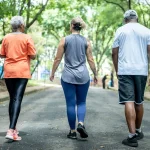After nationwide protests calling for the end of lockdowns and greater political freedom, China’s top Covid official and multiple cities have indicated a possible relaxation of the country’s strict zero-tolerance approach to the virus.
Protests have been held in major cities like Beijing, Shanghai, and Guangzhou due to anger regarding China’s zero-Covid policy, which includes widespread lockdowns, continuous testing, and quarantines even for individuals who are not infected.
However, despite the fact that authorities have called for a “crackdown” in response to the demonstrations, they have also begun to suggest that the strict virus strategy may be being relaxed.
According to the state-run news agency Xinhua, Vice Premier Sun Chunlan stated on Wednesday at the National Health Commission that vaccination rates were rising and that the Omicron variant was weakening.
Sun, a central figure in Beijing’s response to the pandemic, stated that this “new situation” necessitated “new tasks.”
In her most recent remarks, she made no mention of the zero-Covid policy, which suggests that an approach that has disrupted the economy and may soon be relaxed.
The Chinese capital announced that it would reduce the burdensome daily testing requirements that are a part of zero-Covid life.
Xu Hejian, a spokesman for the Beijing Municipal Government, stated on Wednesday that individuals over the age of 65, individuals who work from home, students and teachers in online education, and others who do not frequently leave their homes are now exempt from daily tests.
However, Beijing residents must still pass a Covid test with a negative result within 48 hours to enter cafes, restaurants, and shopping malls.
Local officials in Beijing and Guangzhou were planning to allow some positive Covid cases to quarantine at home rather than at state-run facilities, according to a report published on Thursday by the state-owned Southern Metropolis Daily.
The report was later removed, and AFP inquiries to local authorities in those cities for confirmation received no response.

‘Living with Covid’
In “Living with Covid,” the southern manufacturing hub of Guangzhou, which was the scene of dramatic clashes between police and protesters on Tuesday night, also said that daily mass testing would be stopped for people who don’t have to leave their homes often, like the elderly and children.
On Thursday, the Haizhu district, the site of the most recent protests, went one step further and stated that only certain occupations, such as medical staff, pharmacists, and sanitary and delivery workers, require daily tests.
Despite record virus cases, officials partially lifted a lockdown that had been in place for weeks the day before, easing restrictions in all 11 districts, including Haizhu.
In addition, the central city of Chongqing stated on Wednesday that close relatives of Covid cases who met certain requirements would be permitted to quarantine at home, in contrast to the regulations that required them to be sent to central isolation facilities.
According to analysts at ANZ Research, both Sun’s remarks and local authorities’ relaxations of regulations “could signal that China is beginning to consider the end of its stringent zero-Covid policy.”“We believe that Chinese authorities are shifting to a ‘living with Covid’ stance, as reflected in new regulations that permit individuals to engage in ‘home isolation’ as opposed to being transported to quarantine facilities,” the authors write.
On Thursday, the nation reported 35,800 domestic covid cases, the majority of which were asymptomatic.
‘Sign of weakness’
China’s hardline approach to the pandemic has stoked unrest not seen since the 1989 pro-democracy protests as it approaches the third anniversary of the pandemic’s first detection in the central city of Wuhan.
People blamed Covid curbs for trapping victims inside the burning building after a fatal fire last week in Urumqi, the capital of the northwestern region of Xinjiang.
However, demonstrators have also demanded broader political reforms, including the resignation of President Xi Jinping.
Verifying the number of protesters in China’s vast territory has been extremely challenging due to the country’s strict information control and persistent travel restrictions.
However, rallies like the one that took place over the weekend are extremely uncommon in China.
When the military moved in, the pro-democracy protests of 1989 ended in violence, most notably in Beijing’s Tiananmen Square and the surrounding areas.
The ruling Communist Party emphasized Jiang Zemin’s role in the Tiananmen Square crackdown after his death on Wednesday. Jiang Zemin came to power shortly after Tiananmen.
In an interview with NBC News, US Secretary of State Antony Blinken was asked about the protests. He said that people in every country should be able to “make known their frustration” through peaceful demonstrations.
He stated, “In any country where we see that happening and the government takes massive repressive action to stop it, that’s not a sign of strength, that’s a sign of weakness.”








